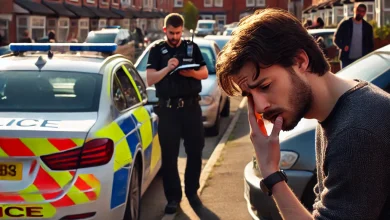What Are the Sections in PACE that Require You to Give Your Name to Police Officers?

If you’ve ever been stopped by a police officer in the UK, you may be aware that there are certain circumstances in which you are required to give your name and other identifying information to the officer. These requirements are set out in the Police and Criminal Evidence Act (PACE) 1984, which provides the legal framework for police powers in England and Wales. In this post, we’ll provide a list of the sections in PACE that require individuals to give their name to police officers.
- Section 24 – requires you to give your name and address to a police officer who reasonably believes you have committed a criminal offense or are about to do so.
- Section 35 – requires you to give your name and address to a police officer who stops you on the street and reasonably suspects that you have committed a crime.
- Section 50 – requires you to give your name and address to a police officer who reasonably suspects you have committed an offense under the Railway Byelaws.
- Section 50A – requires you to give your name and address to a police officer who reasonably suspects you have committed an offense under the Anti-social Behaviour Act.
- Section 50B – requires you to give your name and address to a police officer who reasonably suspects you have committed an offense under the Psychoactive Substances Act.
- Section 54 – requires you to give your name and address if you are arrested for an offense.
- Section 60AA – allows a police officer to require you to remove a face covering or anything else that is obscuring your face in a public place for the purpose of checking your identity.
- Section 76 – allows a police officer to require you to give your name and address if they reasonably believe you have committed a public order offense or are about to do so.
- Section 136 – allows a police officer to require you to give your name and address if they have reasonable grounds to suspect that you are in a public place and have a mental disorder.
- Section 163 – allows a police officer to require you to give your name and address if they reasonably believe you have committed a traffic offense or have been involved in a traffic accident.
It’s important to note that the circumstances in which a police officer can require you to give your name and other identifying information will depend on the specific section of PACE that is being applied, as well as the circumstances of the situation. Additionally, there may be other laws or regulations that have their own provisions for requiring individuals to provide their name and other identifying information to law enforcement officials.
If you are ever stopped by a police officer and asked to provide your name, it’s important to remain calm and comply with their request if it falls under one of the sections listed above. Providing your name and other identifying information can help the police to identify you and determine whether you have committed a crime or are involved in an incident. However, if you believe that the police officer is acting improperly or exceeding their powers, you may wish to seek legal advice.
We hope that this list of sections in PACE that require individuals to give their name to police officers has been helpful. If you have any questions or comments, please feel free to leave them below.




